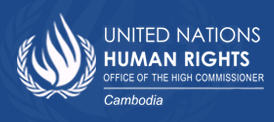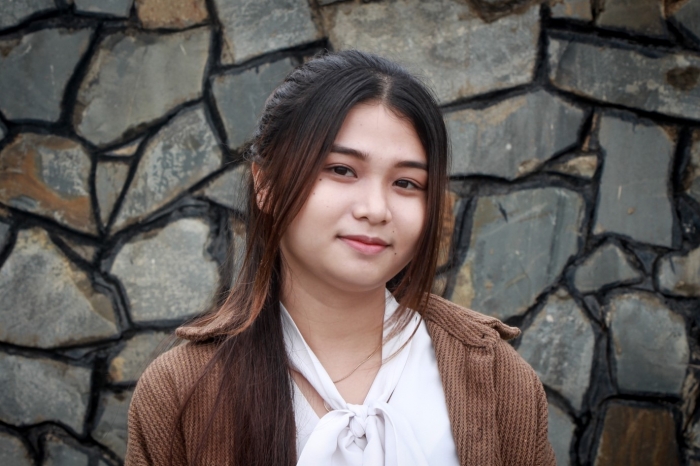

Standing outside the Khmer Rouge Tribunal, Votey Panha shares what little she knows about her grandfather.
“My grandmother only told me that our family lost Grandpa during the regime.”
The mystery that surrounds Panha’s grandfather’s death is not a unique story in Cambodia, where between 1.5 to 3 million Cambodians are estimated to have perished during the short, bloody years of the Khmer Rouge regime, from 1975 to 1979. However, Panha’s attitude to the brutal past is more uncommon in a country where the past is often rather forgotten, some four decades on.
“It is a dark story for every Cambodian. I want to get to know what happened during that time and understand why the Khmer Rouge regime arose.”
She says while it may often be easier to forget the pain of the past in favour of moving forward, it is important the lessons are remembered.
“We need to preserve this legal history to remind Cambodians of what happened, so it doesn’t happen again in the future.”
Now the third-year law student is doing what she can to ensure history does not repeat, using legal tools to help the country move forward.
“I believe seeking an understanding of what happened will give us all the ability to prevent the atrocities of the past from recurring,” she says.
Panha is one of 130 law students and legal professionals who have enrolled in six e-learning courses. Run by Legal Aid of Cambodia (LAC), the Educating on the Khmer Rouge: Legal History and Practice e-Learning and Training Program is open to the public and aims to highlight the legal case history and lessons learned from more than 15 years of the Khmer Rouge Tribunal, as the court winds down – with only one active case left.
In the 1990s, there were only six to 12 lawyers left in Cambodia who survived the mass executions from the Khmer Rouge era, according to researchers.
Known formally as the Extraordinary Chambers in the Courts of Cambodia (ECCC), discussions to establish the Khmer Rouge Tribunal began in 2001 and it was tasked with prosecuting key Khmer Rouge figures. In addition to three convictions, there is a tome of international and human rights case law that has come out of the process, LAC executive director Saray Run says.
“We noticed that there was a lack of accessible learning materials…on the work of the ECCC, international criminal and human rights laws, and foundational skills necessary for legal processes such as investigations and trial preparation.”
This led to the development of the e-learning programme with the goal of building the next generation of public interest lawyers and legal professionals to preserve the legacy of international law developed in Cambodia – and strengthen rule of law in the country.
As a member of the Project Advisory Group, UN Human Rights Cambodia provided feedback on the curriculum from May 2021 up until the launch. The office also contributed material drawing from the office’s own work on the topic – including training for university students and lawyers, documentation of best practices, and development of an annotated version of the Cambodian Code of Criminal Procedure.
The UN Human Rights approach to achieving justice after devastating conflict, known as ‘transitional justice’, emphasises the use of both judicial and non-judicial mechanisms – including developing national capacities to strengthen rule of law, constitutional, legal and institutional reform and reforming history education.
“An understanding of the country’s pursuit of justice for the atrocities of the past can enable law students and young lawyers to better advocate for today’s most marginalized members of society – and ensure that history does not repeat itself,” Run says.
The courses include topics such as fair trial rights, accountability mechanisms, and the questioning of witnesses at trial. There are also modules on basic criminal law tenets such as the right to the presumption of innocence – meaning everyone must be treated as innocent until a proper judicial process and court determines guilt.
Meanwhile, Panha envisions a future for Cambodia with a stronger rule of law and more human rights protections – one she hopes to work towards as a lawyer once she graduates.
“Although Cambodia [is a party to] eight of nine core human rights treaties, only [ratifying or acceding to] the treaty is not enough. We can make it more effective by practicing it, by respecting it and not violating international law.”
For more information about Legal Aid of Cambodia’s e-learning program, see here: http://www.elearning-lac.org/